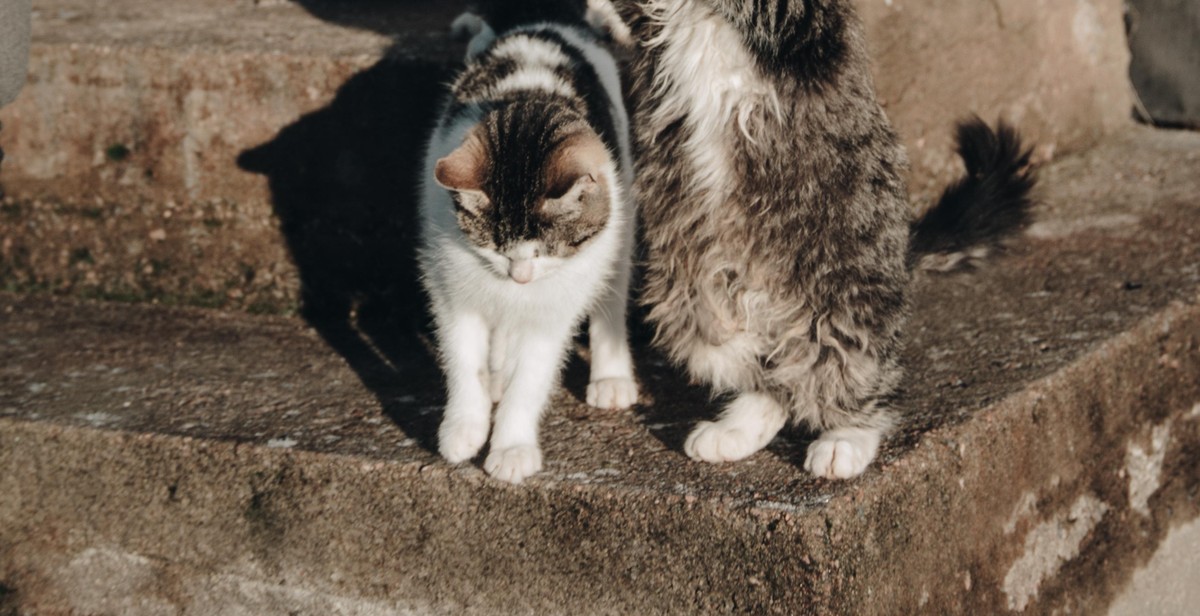How to Feed and Nutritionally Supplement Ostriches: Dietary Requirements for Healthy Ostriches
As a professional ostrich farmer with over a decade of experience in the industry, I have come to understand the importance of proper nutrition for ostriches. Ostriches are unique birds that require a specific diet to maintain optimal health and productivity. In this article, I will share my personal experience and knowledge on how to feed and supplement ostriches with the right nutrients for their well-being.
Dietary Requirements
Ostriches are omnivores and they require a balanced diet that consists of protein, carbohydrates, fats, vitamins, and minerals. Their diet should contain a high percentage of protein as it is essential for their growth and development. The protein content in their diet should be at least 18% to 20%.
Carbohydrates are also important for ostriches as they provide energy. Their diet should contain 50% to 60% carbohydrates. Fats are also essential for ostriches as they help to maintain body temperature and provide energy. Their diet should contain 5% to 10% fats.
Supplements
In addition to a balanced diet, ostriches require supplements to ensure they receive all the necessary nutrients. Some of the essential supplements include vitamin A, D, E, and K, as well as calcium and phosphorus. These supplements should be added to their diet in the right proportions to prevent deficiencies.
By following these guidelines, you can ensure that your ostriches receive the right nutrition for their well-being. In the next sections of this article, we will delve deeper into each aspect of ostrich nutrition and how to provide them with the best diet possible.

Understanding Ostrich Nutrition
Ostriches are omnivorous birds that require a balanced diet to maintain good health and growth. Their diet consists of a variety of foods, including grains, seeds, fruits, vegetables, and insects. In the wild, ostriches feed on a wide range of plant and animal matter, while in captivity, they are usually fed a formulated diet that meets their nutritional requirements.
What do ostriches eat?
Ostriches are known to eat a variety of foods, including:
- Grains: Ostriches enjoy eating grains like wheat, corn, and barley.
- Seeds: Ostriches eat seeds like sunflower seeds and pumpkin seeds.
- Fruits: Ostriches enjoy fruits like apples, bananas, and melons.
- Vegetables: Ostriches eat vegetables like carrots, sweet potatoes, and lettuce.
- Insects: Ostriches also eat insects like crickets, mealworms, and grasshoppers.
It is important to note that ostriches require a balanced diet that includes all the necessary nutrients for their growth and development.
Nutritional requirements for ostriches
Ostriches require a diet that is high in protein, energy, and fiber. They also require a range of vitamins and minerals, including:
- Protein: Ostriches require a diet that is high in protein, which is essential for growth and development. Protein sources for ostriches include soybean meal, fish meal, and meat and bone meal.
- Energy: Ostriches require a diet that is high in energy, which is essential for maintaining their body temperature and overall health. Energy sources for ostriches include corn, wheat, and barley.
- Fiber: Ostriches require a diet that is high in fiber, which is essential for maintaining their digestive health. Fiber sources for ostriches include alfalfa hay, oat hay, and soybean hulls.
- Vitamins and minerals: Ostriches require a range of vitamins and minerals, including vitamin A, vitamin D, vitamin E, calcium, phosphorus, and selenium. These nutrients can be provided through a formulated diet that is specifically designed for ostriches.
| Nutrient | Recommended Level |
|---|---|
| Protein | 18-20% |
| Energy | 2800-3200 kcal/kg |
| Fiber | 10-15% |
| Vitamin A | 5000-10000 IU/kg |
| Vitamin D | 1000-2000 IU/kg |
| Vitamin E | 20-30 IU/kg |
| Calcium | 0.8-1.2% |
| Phosphorus | 0.5-0.8% |
| Selenium | 0.1-0.2 ppm |
It is important to ensure that ostriches receive a balanced diet that meets their nutritional requirements. Feeding them a diet that is deficient in any of these nutrients can result in a range of health problems, including poor growth, weakened immune system, and reproductive issues.

Feeding Ostriches
Feeding ostriches is an essential aspect of ostrich farming. A well-fed ostrich is a healthy one, and good nutrition leads to better growth rates, improved egg production, and overall health. Below are some feeding methods, feeding schedules, and supplementing with vitamins and minerals to ensure the ostriches’ nutritional needs are met.
Feeding methods
Ostriches are grazing animals and prefer to eat fresh pasture, but they can also be fed hay, grains, and pellets. It is essential to ensure that the ostriches have access to clean and fresh water at all times. Ostriches can drink up to 10% of their body weight in water daily, so it is crucial to have a reliable water source.
It is recommended to feed ostriches twice a day, once in the morning and once in the evening, to ensure they have enough food to sustain them throughout the day. Ostriches are social animals and prefer to eat in groups, so it is best to feed them together.
Feeding schedule
The amount of feed an ostrich needs depends on its age, weight, and activity level. A good rule of thumb is to feed 1-2% of their body weight in feed per day. For example, an adult ostrich weighing 300 pounds will need 3-6 pounds of feed per day.
It is crucial to monitor the ostriches’ weight regularly to ensure they are not under or overfed. Underfed ostriches will have slow growth rates, while overfed ostriches can become obese and develop health problems.
Supplementing with vitamins and minerals
Ostriches require a balanced diet that includes vitamins and minerals to maintain good health. A lack of certain vitamins and minerals can lead to health problems and stunted growth.
It is recommended to supplement the ostriches’ diet with vitamin and mineral supplements to ensure they are getting everything they need. Common supplements include calcium, phosphorus, and vitamin D, which are essential for bone growth and development.
| Vitamin/Mineral | Function | Source |
|---|---|---|
| Calcium | Bone growth and development | Crushed limestone, oyster shells, bone meal |
| Phosphorus | Bone growth and development | Meat and bone meal, fishmeal |
| Vitamin D | Calcium absorption | Sunlight, fish oil, egg yolks |
It is crucial to follow the recommended dosage guidelines when supplementing with vitamins and minerals to avoid over-supplementing, which can be harmful to the ostriches’ health.
- Feed ostriches twice a day, once in the morning and once in the evening
- Provide fresh and clean water at all times
- Monitor ostriches’ weight regularly to ensure they are not under or overfed
- Supplement their diet with vitamins and minerals to ensure they are getting everything they need

Common Nutritional Problems in Ostriches
Ostriches are unique birds that require a specific diet to maintain their health. However, they are susceptible to a few nutritional problems that can affect their growth and overall well-being. Here are some of the most common nutritional problems in ostriches:
Obesity
Obesity is a common nutritional problem in ostriches that can lead to various health issues. This problem often arises due to overfeeding or feeding them with a diet that is high in fat. Ostriches that are obese are more likely to develop heart disease, liver problems, and other health complications. To prevent obesity, it is crucial to feed ostriches a balanced diet that contains a moderate amount of fat and protein.
Undernourishment
Undernourishment is another common nutritional problem in ostriches that can affect their growth and development. Ostriches that are undernourished often have a weak immune system and are more susceptible to diseases. This problem can arise due to feeding them with a diet that lacks essential nutrients such as protein, vitamins, and minerals. To prevent undernourishment, it is important to feed ostriches a well-balanced diet that contains all the necessary nutrients.
Vitamin Deficiencies
Vitamin deficiencies are also common in ostriches and can lead to various health problems. Ostriches require a specific amount of vitamins to maintain their health, and a deficiency in any of these vitamins can cause serious health issues. For instance, a deficiency in vitamin A can cause vision problems, while a deficiency in vitamin D can lead to weak bones and muscle weakness. It is important to provide ostriches with a diet that contains all the necessary vitamins to prevent these deficiencies.
In conclusion, ostriches are unique birds that require a specific diet to maintain their health. However, they are susceptible to a few nutritional problems that can affect their growth and overall well-being. It is important to feed ostriches a well-balanced diet that contains all the necessary nutrients to prevent these problems.

Conclusion
Feeding and nutritionally supplementing ostriches is a crucial aspect of ostrich farming. Proper nutrition ensures that ostriches grow healthy and produce high-quality meat and eggs. As a professional and experienced ostrich farmer, I have learned that providing a balanced diet and supplementing it with essential nutrients is essential for the overall health of ostriches.
Understanding the dietary requirements of ostriches is the first step in providing optimal nutrition. Ostriches require a diet that is high in protein, low in fat, and rich in vitamins and minerals. They also need access to clean water at all times.
Supplementing ostrich feed with essential nutrients such as calcium, phosphorus, and vitamins A, D, and E is also important. These nutrients are crucial for bone development, egg production, and overall health.
In conclusion, feeding and nutritionally supplementing ostriches is not only important for their health but also for the profitability of ostrich farming. By following the guidelines outlined in this article, you can ensure that your ostriches receive proper nutrition and grow healthy, which translates to higher yields of quality ostrich meat and eggs.
- Provide a balanced diet
- Supplement feed with essential nutrients
- Ensure access to clean water
By following these steps, you can guarantee the success of your ostrich farming business and the health of your ostriches.
